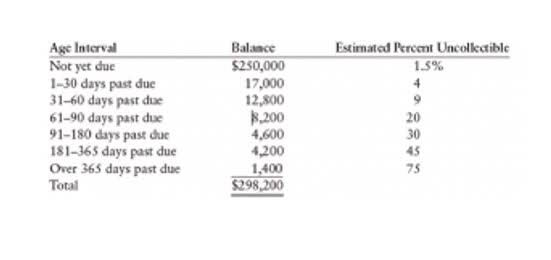In a bank reconciliation, what happens to the outstanding checks of the previous month?
26/02/2021 21:47

If an outstanding check is cashed after you asked a bank to stop the payment, you will be responsible for proving that you took the necessary steps to complete the payment. However, by the end of the month, the landlord still needs to deposit the check. When Sarah receives her bank statement, it shows a balance of $5,000, but her accounting records indicate a balance of $4,200, taking into account the outstanding rent check. An outstanding check refers to a check that has been written by a business but has yet to be deposited by the recipient. Even though the bank statement may not display it, the payee’s account incurs a debit for the amount of the outstanding check.
Online Bill Pay
Your first step should be to use an accounting system that deducts any uncashed checks from your available funds. After that, there are a few more steps you can take to track down an old check. If it is voided, you still need to put a stop payment request on the check. This prevents someone from trying to cash or deposit it and possibly having it affect your account balance. You can then work out a resolution with the payee, perhaps a different payment method.
Business Accounting

As a result, the actual displayed amount in an account (meaning current or available balance) can vary from time to time. Of course, it’s best practice to deposit a check as soon as you receive it, which is why most checks include language encouraging a timely deposit. Financial reporting is a critical component of business transparency and accountability. Among the various elements that require meticulous attention, managing outstanding checks stands out as an area prone to oversight yet significant enough to impact financial statements. Explore effective strategies for handling outstanding checks to ensure accurate financial reporting and maintain fiscal responsibility. Outstanding checks may sit unspent for a long time, but it’s possible to avoid overdraft fees and insufficient funds charges that stem from essentially spending the same money twice.

Problems with Outstanding Checks
Outstanding checks are not merely a clerical concern; they hold implications for cash flow management and can reflect on a company’s fiscal responsibility. As such, their proper handling is essential in presenting an accurate picture of a company’s financial health. Individuals can reduce surprise withdrawals in personal accounts by an outstanding check is one that has not yet been issued. using online bill payment instead of issuing paper checks. The payee will find the money didn’t arrive in their account, which could, in turn, even cause them to overdraft their own account.
- Unlike a check, deposits have already been received by the bank and are being processed.
- Instead, they consider it during the bank reconciliation process to ensure that the cash balance reported on the balance sheet is accurate.
- This could involve sending reminders or confirmations upon check issuance, which not only prompts timely cashing but also verifies that the check has reached the intended recipient.
- However, until the recipient cashes the check, the bank statement will not reflect this transaction.
- However, it is ultimately up to the receiving bank whether they will cash (or deposit) a check or not.

Outstanding checks aren’t necessarily inherently bad; however, there are some risks and downsides to have checks linger. © 2024 Greenlight Investment Advisors, LLC (GIA), an SEC Registered Investment Advisor provides investment advisory services to its clients. It is important to remember that electronic transfer security measures must be put in place to prevent loss of funds. With $0 minimum to open online and Low Cash Mode® to help avoid overdrafts.
Should You Write Another Check?

Also, one can communicate with the recipient of the check to see if they have any issues with the check, say if the amount is incorrect. This approach helps to keep issues with the check in check and work toward rectifying them before they become challenges. Also, outstanding checks may prove a hassle for an otherwise careful consumer. Keeping track of multiple uncashed checks over a long period of time makes it easier to accidentally spend the money that was set aside for a check and incur overdraft fees.
- If more than six months have passed, that check may well be expired and considered void.
- This typically occurs after a few years, but timetables vary from state to state.
- If a check was issued to you and it’s still outstanding after six months, contact the check issuer and request a replacement.
- If an outstanding check of the previous month clears the bank, it means the bank paid the check and the check will appear as a deduction on the statement.
- It’s possible that the bank could also decline to honor the outstanding check, as well.
- The payor, or person with the checking account, writes a check to the person they want to pay in the payment amount.
Furthermore, checks that are never cashed may constitute retained earnings “unclaimed property” that is turned over to the state. Instead, electronic cash payment methods, such as Zelle®, take the money out of your account faster. By not trusting the payee to take action, you remove the possibility that they will forget or put off cashing or depositing the check. When the check is cashed or deposited, it is no longer considered outstanding, and the payor can reconcile the payment with the pending transaction. Once presented to the bank and cleared, the check transforms into obtainable cash. However, it may incur banking charges or take time to cash, establishing it as a monetary instrument that ensures payment after proper due diligence by the bank.










